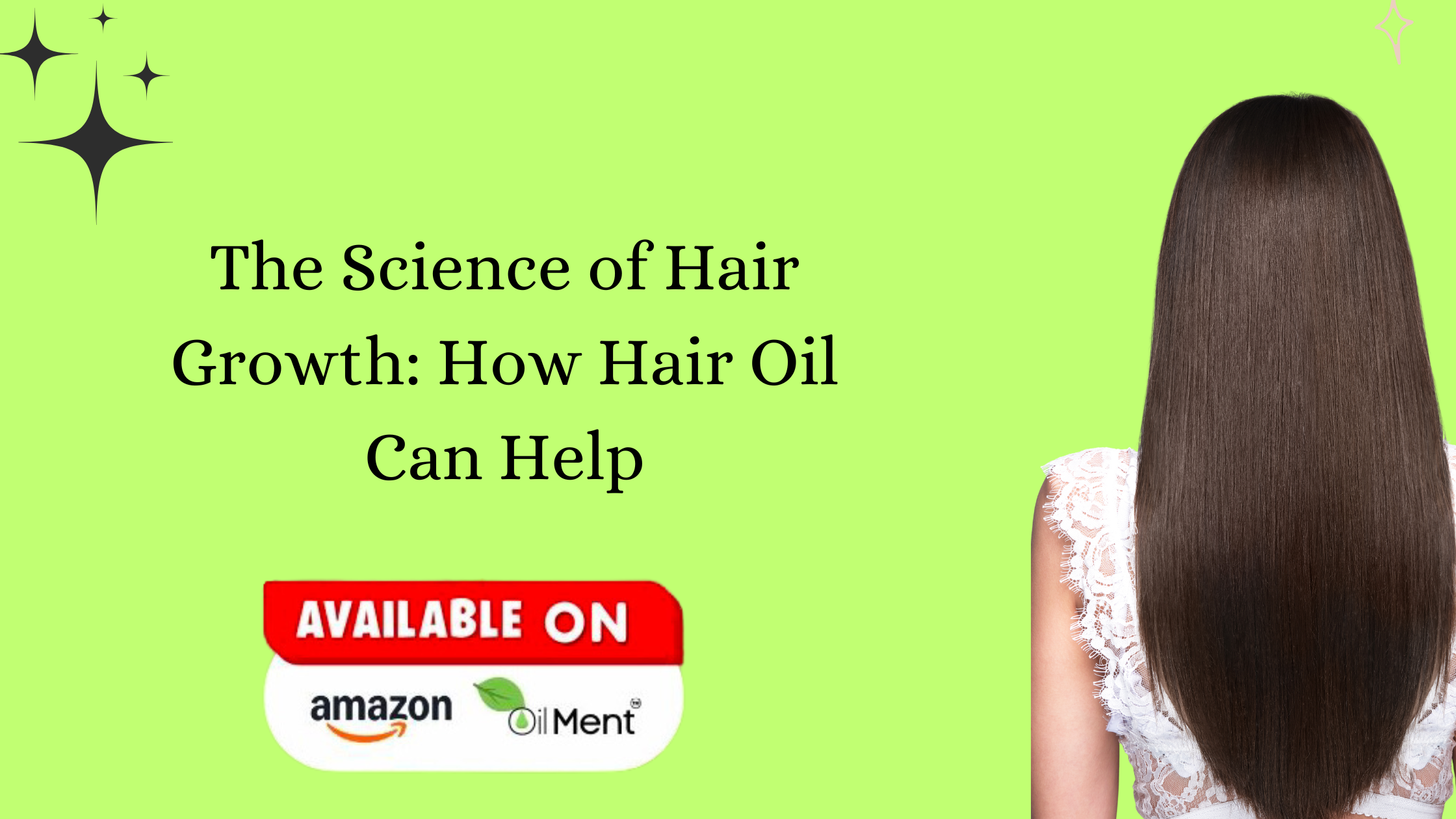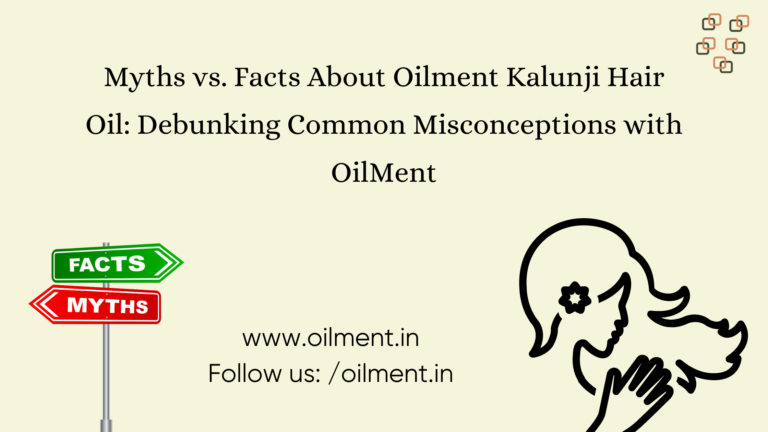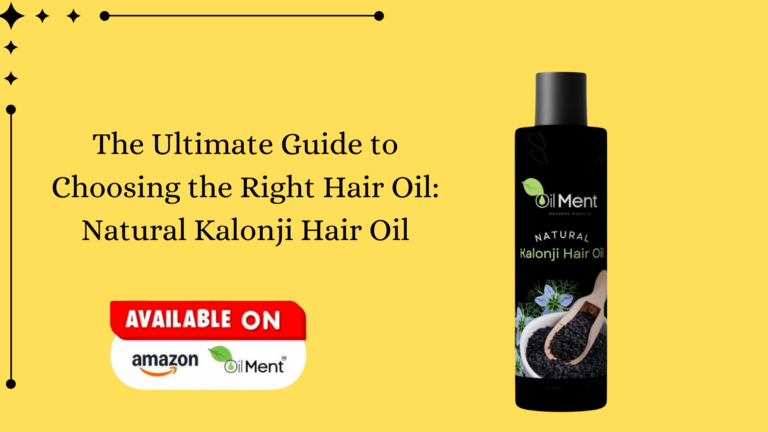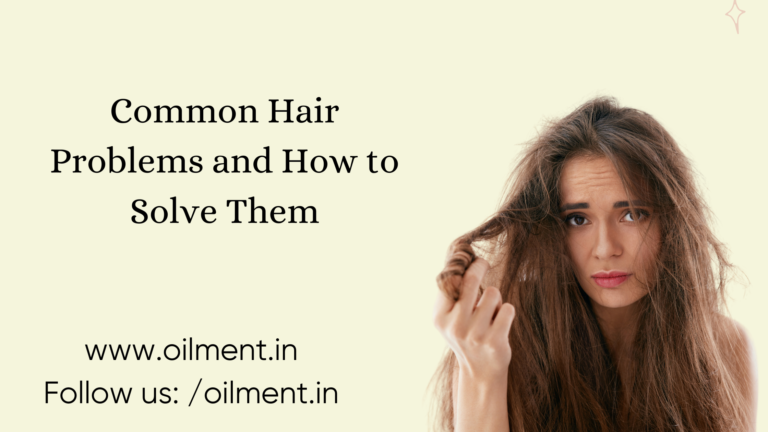Hair growth is a fascinating and complex process, influenced by various biological mechanisms within our bodies. Understanding these processes can help us appreciate how natural oils play a vital role in supporting and enhancing hair health. Let’s delve into the science of hair growth and discover how hair oils can be a game-changer for your hair care routine.
The Biological Processes/ The Science of Hair Growth
Hair growth occurs in a cycle composed of three primary phases: anagen, catagen, and telogen.

- Anagen Phase (Growth Phase): This is the active growth phase of hair follicles, lasting anywhere from 2 to 7 years. During this phase, cells in the hair bulb divide rapidly, leading to the formation of new hair. The length of this phase determines the length of the hair.
2. Catagen Phase (Transitional Phase): Lasting about 2 to 3 weeks, the catagen phase is a short transitional period where hair growth stops, and the hair follicle shrinks. This phase marks the end of active hair growth and prepares the hair for the shedding phase.
3. Telogen Phase (Resting Phase): During this phase, which lasts around 3 months, the hair follicle remains dormant. The hair strand is fully formed and remains in the follicle until it falls out, making way for new hair growth to begin again in the anagen phase.
Factors Influencing Hair Growth
Several factors influence the hair growth cycle, including genetics, age, hormones, nutrition, and overall health. Maintaining a healthy scalp environment is crucial for promoting optimal hair growth. Here’s where hair oils come into play.
How Hair Oils Support Hair Growth
Natural oils have been used for centuries to nourish and protect hair. Here’s how they support the biological processes of hair growth:
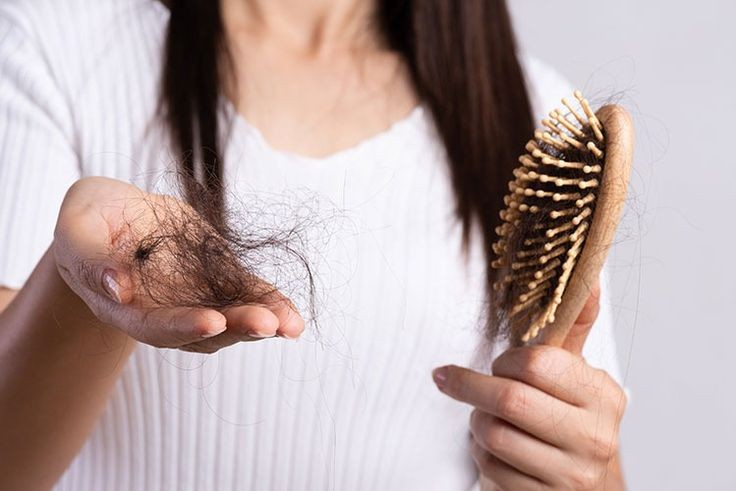
- Nourishment and Moisture: Natural oils, such as coconut oil, almond oil, and kalonji oil, are rich in essential fatty acids, vitamins, and antioxidants. These nutrients penetrate the hair shaft and scalp, providing deep hydration and nourishment. Well-nourished hair follicles are more likely to produce healthy, strong hair.
- Improved Blood Circulation: Massaging hair oil into the scalp stimulates blood flow, ensuring that hair follicles receive an adequate supply of oxygen and nutrients. Improved circulation supports the anagen phase, promoting active hair growth.
- Scalp Health: A healthy scalp is the foundation for healthy hair. Natural oils have antimicrobial and anti-inflammatory properties that help maintain scalp health by preventing infections, and keeping dandruff at bay. A clean and healthy scalp environment is essential for the proper functioning of hair follicles.

4. Strengthening Hair Strands: Oils form a protective barrier around hair strands, reducing protein loss and preventing damage. Stronger hair strands are less prone to breakage and split ends, contributing to overall hair length and health.
5. Reducing Hair Fall: Regular use of hair oils can help reduce hair fall by strengthening the hair roots and minimizing hair breakage.
Conclusion
Understanding the science of hair growth helps us appreciate the role natural oils play in supporting healthy hair. By providing essential nutrients, improving blood circulation, maintaining scalp health, and strengthening hair strands, hair oils are an invaluable addition to your hair care routine. Embrace the power of natural oils and give your hair the nourishment it deserves for optimal growth and health

